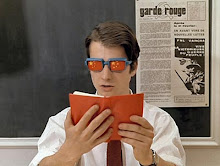Any chance that NIGHT MOVES had to slowly ooze its way into the film-going consciousness of 1975 and to ultimately metamorphosize into one of that decade’s many “sleeper” hits was soundly destroyed by the runaway success of JAWS, released a week later with a then novel concept: network TV commercial promotion that necessitated concurrent openings nationwide. In the era before the multiplex, when many towns had only one or two theatres with a screen each, you can be certain that substance was squashed by hype. In fact, JAWS joins together with STAR WARS and ROCKY to from a trinity of hype, a triangle of normalcy that essentially derailed the progress made toward a wide-ranging, adult cinema in the years following the end of the Production Code. Of course, freedom often meant undisciplined folly, but NIGHT MOVES was just the opposite, unfolding as an intelligent, mature, and graceful work that subtly plants its seeds of discontent. Arthur Penn’s film stands up to present-day scrutiny with flying colors, and on the basis of one viewing I feel unusually confident in calling it one of the best U.S. movies of its decade and a key “forgotten” film.
From within the well-worn territory of the detective/noir genre, Penn presents a group of characters that flitter between colorful and plain. Gene Hackman’s Harry Moseby is closest to an archetypal standard, inhabiting a role that’s not far from the land of low-rent private-eyes. Decency and vulnerability complicate and deepen this portrayal however, and one of the many joys of this film is that none of its characters register as a cliché.
In addition, Neo-noir often flounders or fails outright when it feels superior to its reference material (something it shares with Neo-westerns) so it comes as a breath of fresh air that NIGHT MOVES never falls into a condescending tone. Instead, Penn and writer Alan Sharpe have seen fit to simply update the malaise and despair of the noir model so that it fits snuggly into the creeping desolation of the mid-1970s with no straining for relevance or bouts of overzealous existential alienation. This works well with the movie’s visual style. Penn’s approach to cinematic form is quiet but strong, and unlike many films from the same era, MOVES never looks fussy, junky, gaudy or washed-out. As content and form expertly intertwine, the story gradually builds in complexity and tension, ultimately culminating in one of the more unexpected and emotionally devastating endings to have entered my filmic experience. Its final shot depicts an aimlessness that is representative of its time, yet still holds resonance and power, since aimlessness can surely curdle into something far more malignant. Maybe it has.
Penn with Melanie Griffith on the NIGHT MOVES set





No comments:
Post a Comment